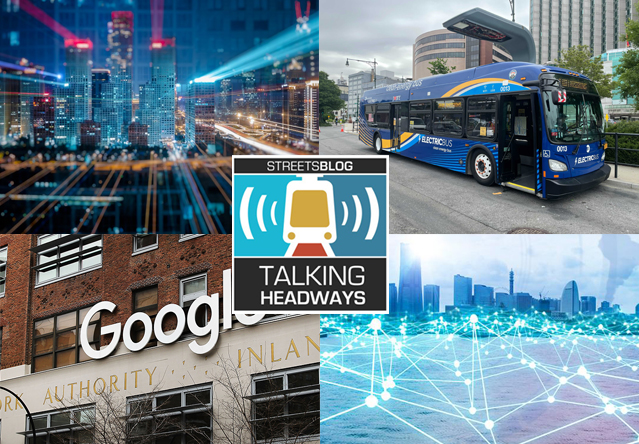This week we’re joined by Andrew Salzberg, head of policy at Transit app. Salzberg talks with us about Transit’s "Guide to Open Mobility as a Service" and discusses how policy can create a better travel experience for everyone. We talk about data standards, what MDS is actually for, and making mobility more like e-mail.
For those of you who prefer to read rather than to listen, check out an edited transcript below the audio player. For the unedited full podcast, click here.
Jeff Wood: You did come on to talking about this recent document, "The Guide to Open Mobility as a Service," you all discuss creating open mobility standards and the like, what does that mean specifically? What does an open mobility standard mean to you?
Andrew Salzberg: I like to talk about it using an analogy. So the one that’s the most obvious to me and we have lots of digital systems where data standards are already a thing. But my favorite example is in communications. So if you think about e-mail, which is not a very exciting topic, but if I send you an e-mail and you use Yahoo and I use Gmail and we include someone else who uses Hotmail, our messages get to each other, and we don’t really have to think about it. You know, the fact that I’m even saying it probably strikes people as odd, it’s so boring and mundane and happening in the background. But the only reason that’s the case is because, 50 years ago in the 1970s, people got together and set up a data standard for how e-mail works. It’s been working on that standard ever since, which means that no one company controls the interface and no one company can dominate it.
It doesn’t matter what client you use or what software you use to send e-mail. We can all exchange with each other, but that’s a way in which that system was built on an open data standard. If you contrast that with other ways to message someone, you know, I want to message my cousin who uses Facebook Messenger. I have to download Facebook Messenger to send her a message. That means that even if I don’t like Facebook, for whatever reason, I don’t love the company or the interface is clunky, or I just have enough messaging apps, I still have to download that app. That’s because there is no open standard for sending someone a Facebook Messenger message, you have to be in that little ecosystem to be able to use it. So, broadly speaking, the purpose of our guide that we put out around open mobility as a service is to try and provide a pathway for mobility, as it goes increasingly digital to work more like e-mail and less like Facebook Messenger.
We can get into the specifics. But I think at a high level, if that happens, we have a theory and I personally have a real strong belief that that system was going to be more transparent, more accountable, ultimately also more equitable for writers and more sustainable if we can do it that way. So that’s the big picture.
Jeff Wood: We hear a lot about this idea of the “walled garden.” The idea that they want to keep users inside of their local ecosystem instead of allowing them to break out and to be different. So what gives you heart that what actually would happen with an open data system is more akin to e-mail than Facebook Messenger?
Andrew Salzberg: Well, I don’t want to sound like it’s going to be easy. I don’t think there’s any guarantee that it will happen. There are pieces we can talk about that are happening already; there’s some really good stuff that’s actually happening. I don’t want to be a really negative, but I also didn’t want to pretend like the stuff is just going to happen on its own — that this system will magically work. I think there’s a lot of investment money and businesses that really want to have as much control over mobility systems and frankly, other areas of business too, so that they can funnel their users to the place that makes the most sense for them. I came on the show last time and I worked at Uber and at the time or around then I think we were, we started using a tagline being the "Amazon" of transportation.
If we think about that now a few years later, there’s a lot of worry I think about the power of Amazon, and how does it work to show you one seller or another, and why do they do that? How much power does that give them over suppliers and whose interest are they working in? I think generally speaking, probably Amazon might not be the model we would love to choose for how our mobility system would work. So I think that we wanna try and outline a different way to do things, but I don’t want to pretend like it’s the easy way. In some ways, I think it’s more challenging, which is why it takes a concerted group of people to actually make it happen. That’s one of the things in the guide is ... Transit [app] wrote the guide but, obviously, it’s not about Transit [app]. You know, inside there are at least a dozen or more companies that we highlight who are doing things differently.
Either they are providing open APIs as a micro-transit provider in the case of Spare, or they have an API for a mobile ticketing platform like Masabi in Ohio does, so multiple people could buy transit tickets really easily. So there’s a lots and lots of examples of individual companies or organizations that are laying the groundwork for a more e-mail like vision of the future of mobility. But I think it’s going to take a lot of energy and dedication to make that the way things go.






